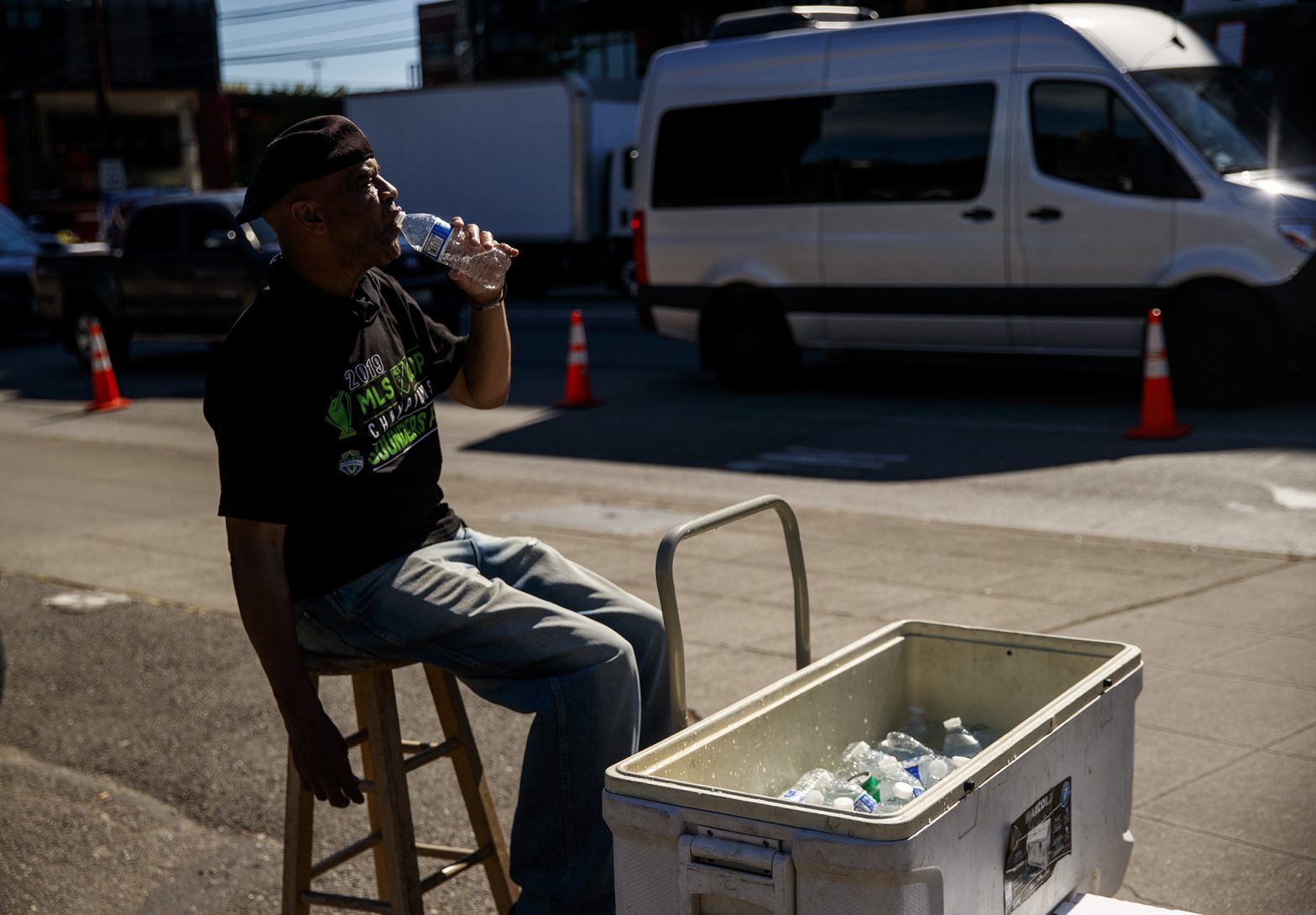No One Wants to Hear Eco-Theories During a Heat Wave
COMMENTARY

The Pacific Northwest region of the U.S. has been sweltering for the past few days under what weather specialists are calling a “once-in-a-millennium heat dome.” In neighboring Canada, 60 temperature records were broken during the same heat wave, as the thermometer reached 117.5 degrees Fahrenheit (47.5 degrees Celsius) in Lytton, British Columbia, breaking a Canadian heat record set in Saskatchewan in 1937.
So the last weather event of this kind was nearly a century ago. That hasn’t stopped the armchair experts from musing about how humans are responsible for their own hot, sticky misery. These members of the behavior patrol constantly remind us that if it wasn’t for humans enjoying the modern conveniences of technology, which create byproducts with a non-zero discharge, then we wouldn’t be subjected to such meteorological discomfort. The reason we’re suffering extreme heat is because we use modern-day appliances, refuse to ride bikes everywhere and aren’t recycling enough, they say.
If this is the case, why did this phenomenon last occur nearly 100 years ago? Here in France, many of the temperature records for cities around the country were set in the early half of the 1900s. And for those who might argue, as many climate-change activists do, that it’s all about “climate deregulation” now, and that extreme cooling could also be a sign of manmade global impact, the record low temperatures for many cities in France date back to the 1800s.
The good news is that, unlike the last time such a heat wave occurred, we now have ways to mitigate the impact. Online chat boards for residents of Vancouver, British Columbia, have been rife with people pointing out that area hotels were full as people fled to air-conditioned environments. One poster on a Reddit forum noted that people were berating employees at a Canadian appliance store upon learning that they were out of air-conditioning units.
The human instinct when one feels hot is to want to cool down by any means. The fact that we live in a modern era of technology that has provided us with the tools to cool down is a testament to our sophistication. Still, there are those who would rather we suffer like savages.
Here in Paris, with a continental climate, it’s not unusual to get summer heat waves. On July 25, 2019, Paris baked in heat that reached 108.3 degrees Fahrenheit (42.4 degrees Celsius). As someone with not one but two portable air conditioners, I’m routinely browbeaten by environmentally minded French citizens whenever I mention how comfortable my home is during the summertime. It shuts them up a bit when I tell them the air-conditioning units are rated A+ for energy consumption according to European regulatory standards.)
No one needs to be lectured by anti-air-conditioning martyrs, who are apparently too uninformed or too blindly ideological to understand that their insistence on their own lack of comfort is really just a product of their own ignorance or cheapness. Let’s face it: People who are militant about sacrificing their comfort in favor of reduced energy consumption are the same people who seem allergic to taking their wallet out of their pocket. They’d rather display their scientific ignorance than ever display a fiver when the bill comes.
Ever notice that these same people rarely berate those who turn on the heat during the cold winter months? Why is heating acceptable while cooling is vilified? It’s almost as if everyone is entitled to comfort from relatively inexpensive heating units, whatever the environmental price, yet cooling off with an ecological air conditioner is taboo because it’s often associated with increased privilege and wealth. In any case, it has nothing to do with the environment, but much to do with irrational virtue-signaling.
The hang-ups of anti-air-conditioning activists aren’t anyone’s problem but their own. Aside from a few bucks a day, they aren’t saving much else — certainly not the Earth. And some of us would be grateful if they would stop contributing to the hot air with their condescension every time there’s a heat wave.
©2021 Tribune Content Agency, LLC
























